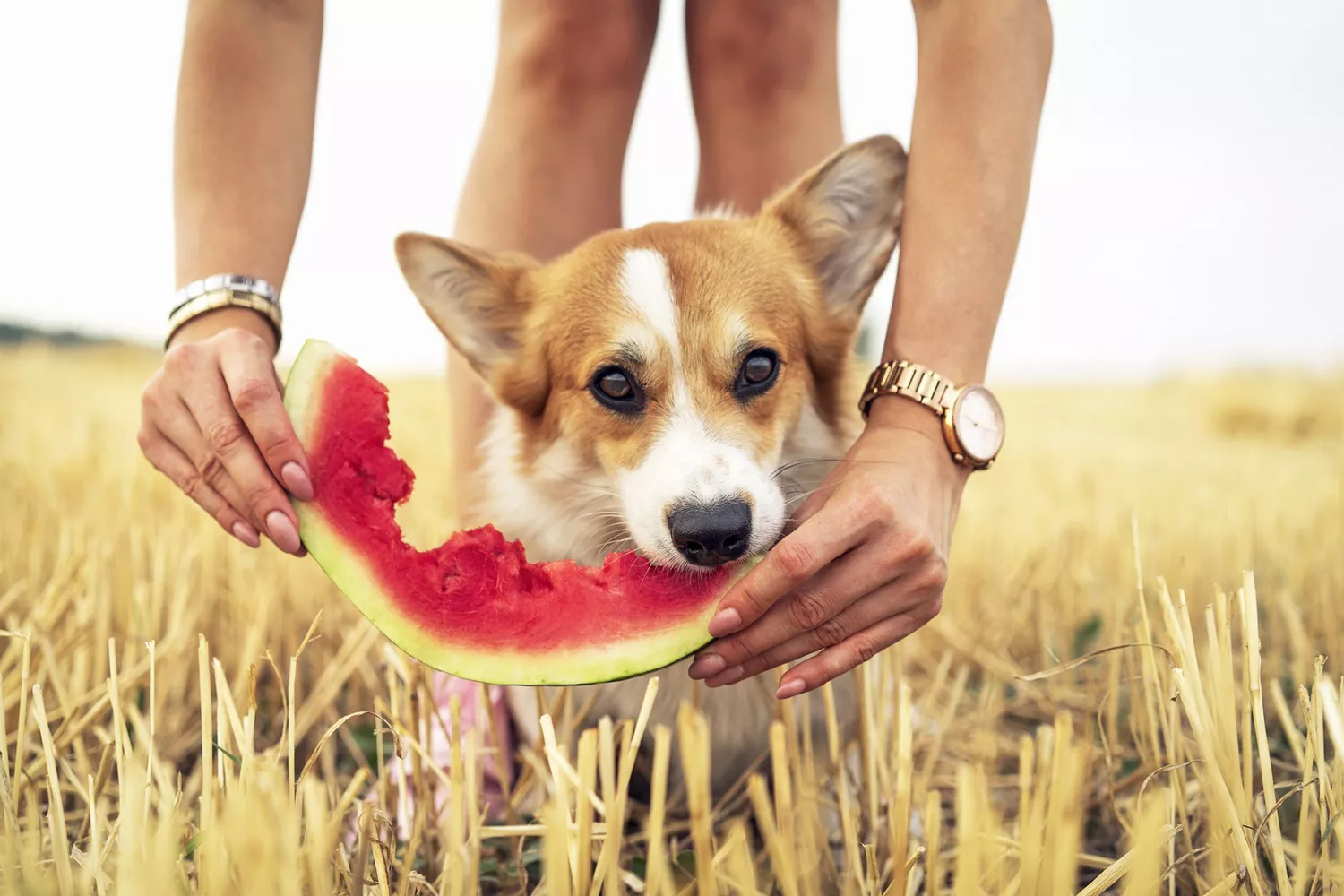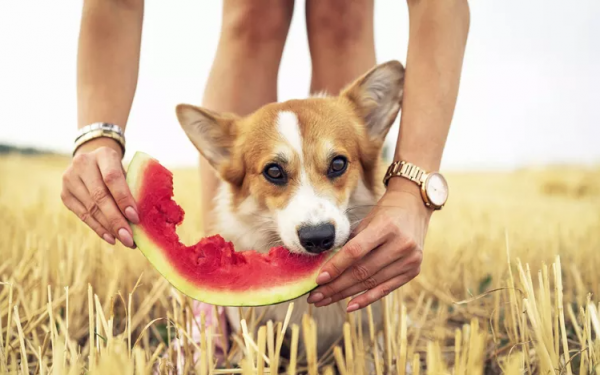There’s nothing quite like enjoying some sweet, juicy fruit on a hot summer day, except maybe sharing that experience with your pup. Luckily, dogs can eat many fruits, both fresh and frozen, just make sure it’s a small piece they can’t choke on. Too much digestive fiber from fruit might give dogs a stomach ache, and too much sugar might make them feel queasy (same as you). But a small amount of fruit is great because it is typically hydrating and lower in calories, pound for pound, than other treats.
So what fruits can dogs eat, and what fruit should they stay away from? We’ve got the rundown to keep your pup safe (and feeling good).

Should Dogs Eat Fruit?
Keep in mind that veterinarians recommend that no more than 10 percent of your dog’s daily calories be made up from treats. That includes fruit and anything else that isn’t part of their balanced diet. If water-filled, fiber-rich fresh fruit makes its way into your dog’s 10 percent or less treat budget, all the better.
Lori Prantil, MPS, DVM, who counsels pet owners on nutrition at VCA South Shore Weymouth, warns that particular dogs’ individual health issues, like diabetes mellitus, may require a veterinarian to watch protein (cutting back for some medical conditions, adding for others), phosphorus and, yes, sugar. And fruit has a lot of sugar. So before sliding your dog a slice of watermelon, check with your vet that fruit is a suitable treat for your dog.
The Best Healthy Snacks for Dogs
What Fruits Can Dogs Eat?
All fruit that you share with your dog should be cut into small pieces to prevent choking. Some examples of healthy fruits for dogs include:
Apples (small pieces with no skin, seeds, or core)
Bananas (peeled)
Blackberries
Blueberries
Cantaloupe (no rind)
Cranberries (but not mixed with raisins, which are toxic)
Mangoes (in small pieces minus the skin and pit)
Oranges (no seeds, peel, stem, or any particularly thick pith)
Pears (no core)
Pineapple (no rind)
Raspberries
Strawberries
Tangerines (no stem, peel, or seeds)
Watermelon (no seeds or rind)
What Fruit Can Dogs Not Eat?
Some fruits should be off-limits to dogs as they can cause some serious health issues. These include:
Avocado (Contains a toxic chemical in its pit and skin)
Cherry, apricot, peach, and plum pits (Contain a small amount of cyanide and can cause sickness or death if chewed up and digested)
Grapes and raisins (Highly toxic, even in small amounts)
Tomatoes (Unripe tomatoes and tomato plants are toxic)
Lemons (Large quantities can cause digestive problems, and the rind could cause intestinal blockages)
How to Know if Your Dog Has Eaten Something Toxic
What To Do If Your Dog Eats a Toxic Fruit
If you saw your dog eat a fruit pit or toxic fruit (or you suspect they ate it), call your vet immediately. You can also contact the Pet Poison Helpline at (855) 764-7661 if you are unsure if what your dog ate is toxic. Do not attempt to induce vomiting without specific instructions from your vet—the toxin could cause even more damage on the way up.



